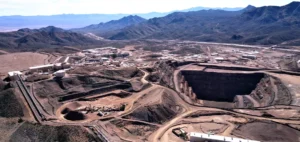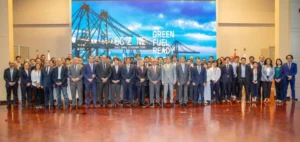The British government has launched a national strategy called “Critical Minerals – Vision 2035” aimed at regulating the country’s supply of critical raw materials. The plan is based on three quantified targets: 10% of demand covered by domestic production, 20% by recycling, and a cap of 60% dependence on any single supplier for each strategic mineral.
A framework aligned with European standards
This regulatory architecture is directly inspired by the European Union’s Critical Raw Materials Act, with similar thresholds but a distinct timeline. London intends to reduce economic risks linked to overexposure to single suppliers while maintaining diplomatic flexibility.
British authorities explicitly acknowledge the current imbalance in the global market. China holds around 70% of rare earth production and nearly 90% of global refining capacity, a situation considered vulnerable for key sectors such as defence, automotive, data centres and energy technologies.
Regional deployment and initial funding
Cornwall has been designated as a priority mining hub with a £50mn public fund to support early-stage exploration and extraction projects. Cornish Lithium, British Lithium and Imerys are among the companies positioned on lithium and tungsten deposits that could be exploited by 2035.
The projected output of 50,000 tonnes of lithium or lithium carbonate equivalent is aimed at meeting the needs of gigafactories, carmakers and permanent magnet manufacturers. However, London’s ambition depends on the mobilisation of private capital, as public funding covers only a small share of required investments.
External partnerships and a de-risking strategy
The United Kingdom has signed a mining cooperation agreement with Saudi Arabia to diversify supply flows outside China’s sphere of influence. London avoids using the term “decoupling” and instead frames this orientation as risk reduction.
The recent Nexperia case has strengthened the rationale for a more stringent regulatory approach. The episode illustrated how sensitive industrial assets can become geopolitical pressure tools, particularly in value chains linked to semiconductors, rare earths and tungsten.
Enhanced supply chain monitoring
The strategy requires reinforced traceability obligations. Companies will need to detail the origin of raw materials, in line with European standards for critical raw materials. Mandatory reporting will apply primarily to defence, energy, automotive and digital technology sectors.
The British government must also structure implementation through several mechanisms: environmental permitting, foreign investment screening and state aid oversight. Environmental regulators will have significant influence over the pace of mining approvals and operating conditions.
Legal constraints and acceptability risks
British environmental standards could become an operational bottleneck if local requirements exceed standard industrial practices. Conversely, overly lenient rules would expose the country to accusations of environmental dumping or potential climate-related litigation.
Limited public funding requires project developers to secure long-term offtake agreements to ensure economic viability. The success of the strategy will largely depend on London’s ability to offer a predictable and competitive regulatory framework compared with support regimes in the European Union and the United States.






















